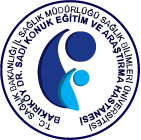ABSTRACT
Objective:
In our study we aimed to examine the hormone profiles of the postmenopausal women having metabolic syndrome and women without metabolic syndromes, and to compare the cardiovascular risk factors between them.
Material and Methods:
The postmenopausal women who had been applied to the outpatient clinics of Internal Medicine at Taksim Research and Education Hospital between the time period of 1-28 June 2009 were included in our study.
Results:
In our study 83 people were received; 57 (69%) of them with metabolic syndrome and 26 (31%) of them control group. The differences between the body mass index, waist circumference, chest circumference and fasting blood glucose were determined statistically significant (p<0.05). The insulin levels were 20 μIU/mL in patients group, and 9 μIU/mL in control group; estradiol levels were 25 pg/mL in patients group while 14 pg/mL in control group (p<0.05). Cortisol levels were 13 mg/mL in patients and 16 mg/mL in control group (p:0.062). Between two groups the levels of serum testosterone, dehidroepiandrosteron sulfate and CRP was not found statistically significant difference.
Conclusion:
As a result the hormone profile of the postmenopausal patients having metabolic syndrome differs from patients without metabolic syndromes. On the other hand regarding the relationship between the metabolic syndrome and testosterone levels; the testosterone levels and the components of metabolic syndrome should be considered individually.



